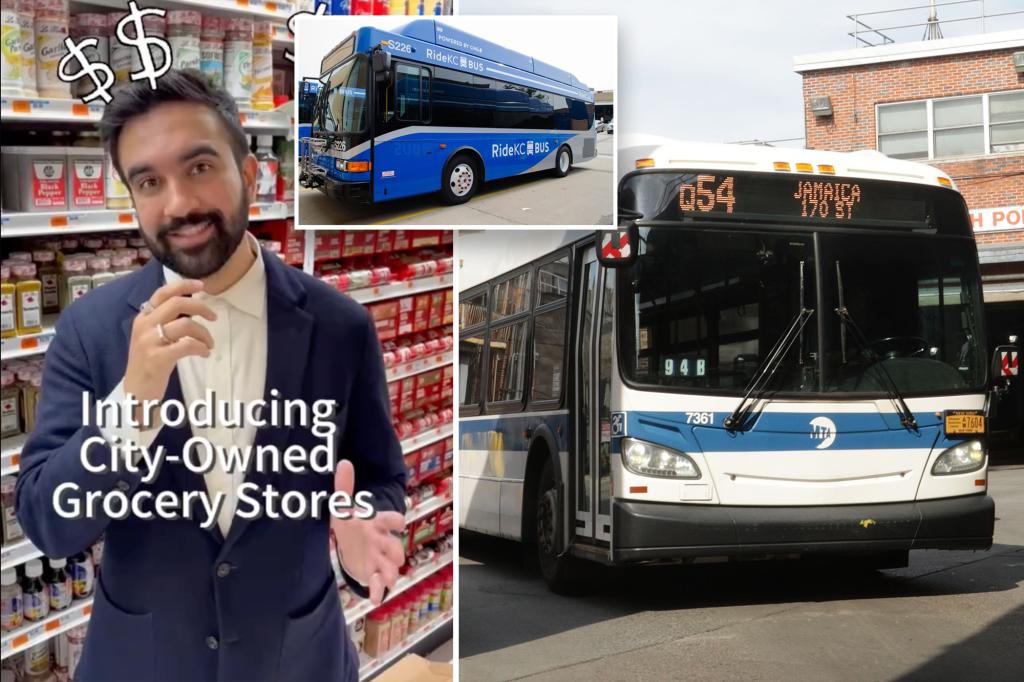Kansas City’s $50 million experiment with free bus fare is hitting the brakes — because the city can no longer afford it.
Mayoral candidate Zohran Mamdani’s socialist proposals — including free buses in the five boroughs and Soviet-style, city-owned grocery stores — are now 0-2 when tried elsewhere, after Kansas City’s own venture with a government-run grocery abruptly closed earlier this month.
The Midwest city used federal COVID-19 relief money in 2020 to become the first in the country to institute free buses.
But local funding dried up, and riders and conductors slammed the buses as unreliable, filthy, rolling homeless shelters, something critics say could easily happen in Gotham.
“If you go from charging a fare to not charging fare, ridership goes up, and you end up with degradation of service,” said Ken Girardin, a fellow at the Manhattan Institute.
Mamdani, who’s made free bus service citywide is a centerpiece of his mayoral campaign, was behind a 2023 state pilot to bring one free bus route to each of the five boroughs.
He later co-wrote an editorial in The Nation, declaring that “continuing to make buses free in New York is more attainable than you might believe.”
The program “was his baby,” recalled Girardin.
But the MTA’s own assessment was far less glowing — the 30% jump in ridership came mostly from people already riding the bus — not new, low-income commuters the program was supposed to help.
Service slowed, and the pilot program, which ended Aug. 31, 2024, still managed to run over its $15 million budget.
Mamdani has also called for additional bus-related capital spending, but he hasn’t put a price tag on it.
“The flashing red light on Mamdani’s platform, is the fact that he says he can do it all. $10 billion,” said Girardin.
“I laugh because half the people don’t pay their bus fare now,” said Republican mayoral candidate Curtis Sliwa of the free bus proposal.
“I am the only mayoral candidate who insists that if you don’t pay the fare, you should get a ticket or face arrest.”
Mamdani’s campaign did not return The Post’s request for comment.
Read the full article here
